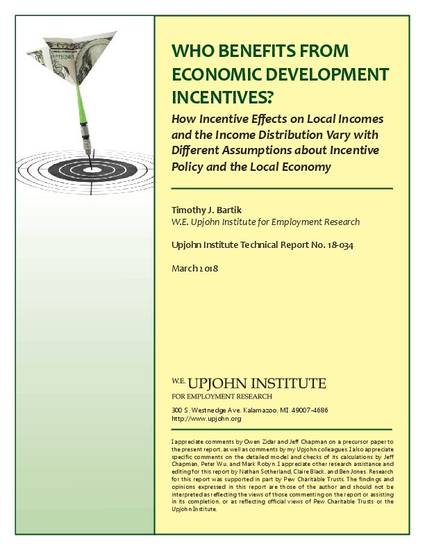
This report presents results from a simulation model that examines the effects of economic development incentives (e.g., tax incentives such as property tax abatements or job creation tax credits) provided to businesses by state and local governments in the United States. The model simulates effects of incentive policies on the incomes of local residents, both for different income types (e.g., labor income versus property income) and for different income quintiles, under different assumptions about the economy’s workings and public policy. Net benefits of incentives for local incomes are greater if the incentives have greater job-creation effects conditional on their effects on business costs, and in particular if incentives have multipliers as great as have sometimes been estimated for high tech manufacturing. Incentive design and financing is also key. If tax incentives are replaced with customized services (e.g., customized job training) that are as productive as has sometimes been estimated, net benefits increase enormously, and in a progressive manner. The opportunity costs of how incentives are paid for—what taxes are increased or what spending is cut—also matter a great deal. For example, financing incentives by cutting back on productive services such as K–12 education has very negative effects on local incomes and highly regressive effects on the income distribution. Who gets the jobs matters: local incentive benefits increase, particularly for low- and middle-income groups, if a greater proportion of the jobs go to the local nonemployed rather than in-migrants. Finally, refocusing incentives on locally owned businesses has effects that vary enormously under different assumptions about who is assisted and how they are assisted.
